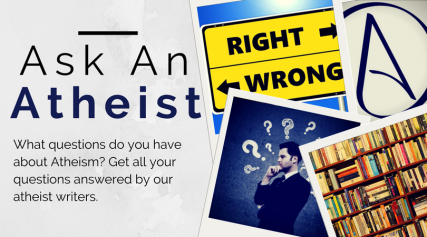By Jim Downard
What do you want to ask an Atheist? Fill out the form below or submit your question online.
As an atheist myself, how do you answer the third or fourth question almost always asked when meeting new people, “What church do you go to”? I know I am the minority population, particularly in this region, so how do you walk the line of not wishing to offend, while not compromising on your own beliefs? – Atheist in the Closet
In my case, it’s a simple “I don’t go to church,” and apart from some high school friends who took me to theirs once, I never have. But for those who could suffer backlash as a non-believer, you could answer in a way that is technically correct, something like, “I don’t think I attend the church you do,” smile, and change the subject to something less controversial, like politics.
The “what church do you attend?” is a not uncommon opening greeting in the religious southern sections of the United States, and says a lot about that cultural frame. Other cultures have different status filters. For example in Britain you might be asked “What does your father do?” to peg you into the privileged social castes derived by personal lineage.
I’d like to see a time where it wouldn’t matter whether you went to church or not, or what one’s parents do for a living. If you’re a decent person and someone you’d enjoy being in the company of, that would be their personal choice one way or another, but hardly a litmus test for the standards of others. We may never be in such a world, but it’s still a worthy goal to aim for.








